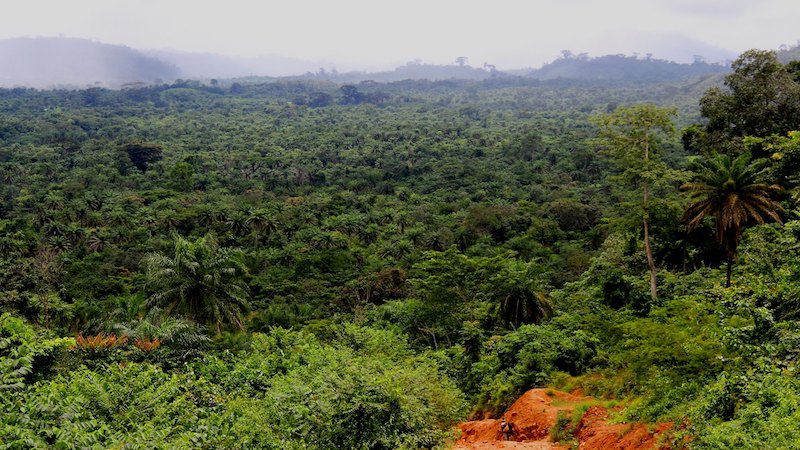An Emirati coalition has announced a $450 million commitment to buy carbon credits generated in Africa but critics called offsets a “risky diversion”
The United Arab Emirates is positioning itself as a carbon credits leader in Africa, committing hundreds of millions of dollars towards producing carbon offsets on the continent and buying land off African governments.
The latest sign of that came on Monday when a coalition of major UAE energy and financial companies indicated its intention to buy $450 million of carbon credits generated in Africa by 2030.
It was one of the most highly-anticipated announcements at the first Africa Climate Summit taking place in Nairobi, Kenya, this week. Over 30 heads of state are joining nearly 25,000 delegates to drum up support for climate action on the continent.
But the summit organiser’s strong focus on instruments such as carbon credits to mobilise funds has attracted criticism from environmental groups.
Developing countries call for $100 billion loss and damage target
Thandile Chinyavanhu, Greenpeace Africa climate and energy campaigner, says “it is regrettable that the Africa Climate Summit is becoming a bazaar for carbon credit speculators and propagandists that serve to greenwash rather than reduce harmful emissions”.
“They are risky diversions from real climate and biodiversity action that requires ending fossil fuel expansion and industrial destruction of our ecosystems”, he added.
Carbon credits mega-deal
Powering Africa’s push for carbon credits is the African Carbon Markets Initiative (ACMI). Launched at Cop27, the group brings together nations including Kenya, Nigeria, Gabon and Western philantropies like the Rockefeller Foundation and Bezos Earth Fund.
Run by the American consultancy Mckinsey, the initiative aims to increase the number of carbon credits generated on the African continent from 16 million a year in 2020 to around 300 million by 2030.
Such large amounts of credits will be created only if there is enough interest from buyers, the initiative argues, so one of the initiative’s main task has been to secure early commitment from investors. Its biggest backer to date is based in the UAE.
During a panel event at the climate summit on Monday, ACMI announced a non-binding agreement to buy $450 of carbon credits from the UAE Carbon Alliance. Founded last June, this coalition includes the Mubadala sovereign wealth fund, renewable energy company Masdar and the UAE’s largest lender, First Abu Dhabi Bank.
What climate funders must learn from Kenya’s wind power troubles
The UAE Carbon Alliance wants to establish the Emirates as “a leading hub for high integrity, high quality carbon markets”, facilitating the trading of offsets between companies.
The ACMI’s head Paul Muthaura says the deal gives a clear indication there is an appetite for African carbon credits. “There is often a sentiment that African credits are not equivalent to those from other regions,” the CEO told Climate Home News. “Having advanced market signals from strong reputable entities reaffirms that there are high quality credits being generated on the African continent.”
US denies rigging loss and damage fund’s board in rich nations’ favour
Climate Asset Management – a joint venture of HSBC and a climate change investment firm called Pollination – also announced a $200 million commitment towards buying ACMI’s carbon credit projects.
Muthaura also added his organisation is in the process of negotiating a more extensive partnership with the UAE-based group for solutions not only in the voluntary carbo
Read More

